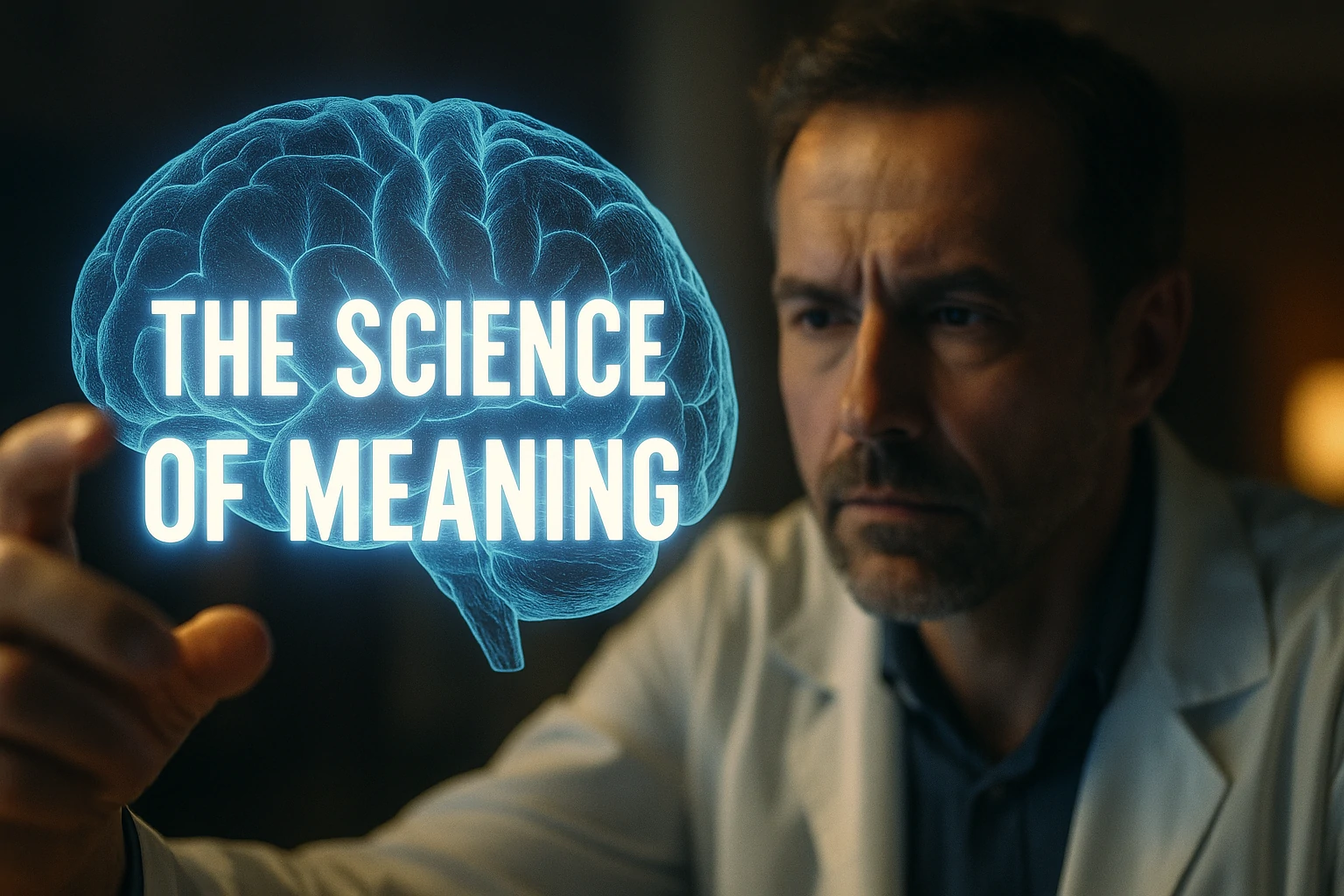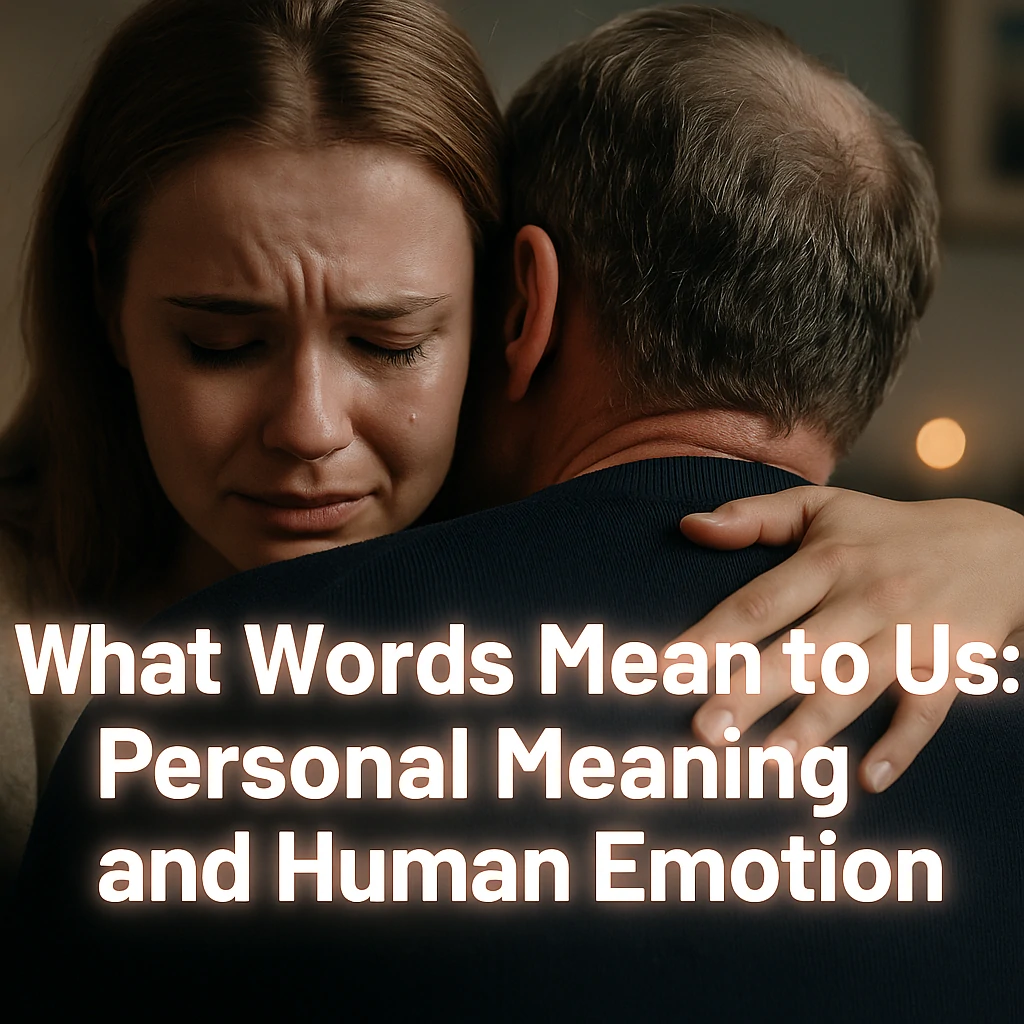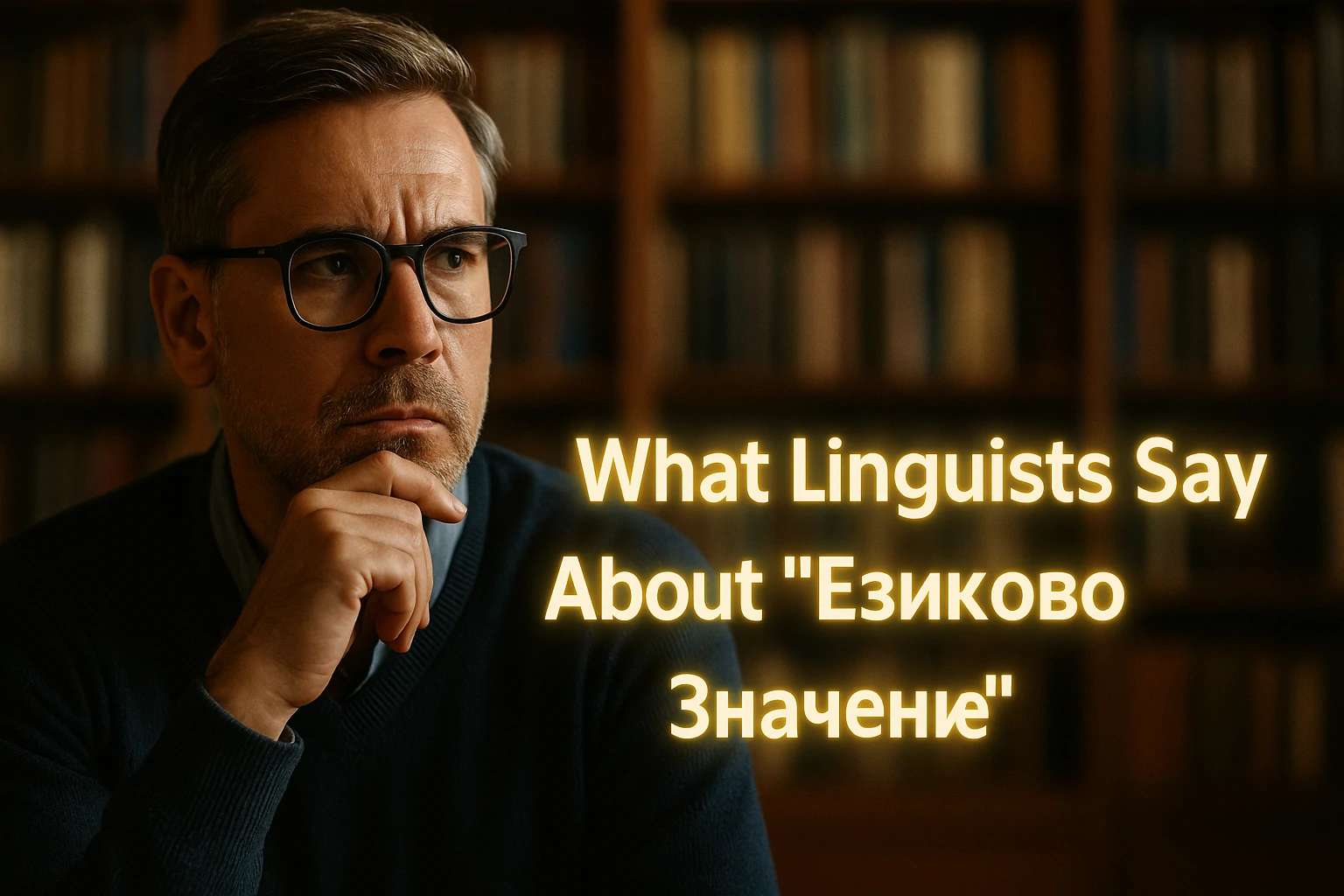Language is not just a tool. It is the frame of thought. It helps us name what we see, feel, or believe. Every word carries a message. Each sentence builds a piece of our world. But there is more to words than their sound or look.
The phrase “езиково значение” means “linguistic meaning.” This comes from Bulgarian. It speaks to the way language gives shape to meaning. It is not about grammar rules alone. It is about how people connect, understand, and think.
We speak to share. But sharing only works when both sides agree on meaning. If the meaning breaks, the message fails. A single word may mean many things. Tone, place, and culture change how people take it. That is why “езиково значение” matters so much.
This guide shows how meaning lives in language. It explains how people find truth in words. You do not need a degree to read this. You only need an open mind. Let this guide walk you through the way language shapes the mind, step by step.
What “Езиково Значение” Means
The phrase “езиково значение” speaks to the soul of language. It means the meaning of words inside a system. But it is more than a dictionary term. It looks at how words carry thought, feeling, and purpose.
In English, we call this “linguistic meaning.” It tells how people know what words mean in talk, books, or life. The meaning does not live in the word alone. It lives in how people use it. It grows from habit, culture, and shared memory.
Think about the word “home.” The dictionary says it means a place where someone lives. But in real life, it may mean safety, love, or peace. That deep sense is not written in rules. It comes from human feeling. That is the heart of linguistic meaning.
Words carry more than sound. They hold layers. They show facts, but also mood and memory. That is why two people can hear the same thing and feel it in different ways. Meaning grows from both the speaker and the listener.
How “Езиково Значение” Shapes Thought
Language teaches us how to think. From birth, we hear words that tell us what things are. These words build our sense of the world. They help us group, sort, and name.
We do not just speak. We also guess, feel, and react. A word said in anger feels sharp. The same word in love feels warm. The tone and time change the meaning. This shows how deep language runs.
People do not always say things straight. They hint, suggest, or joke. Yet others still get the point. That is because meaning does not only come from the word. It comes from how it is used. It also comes from body language, past talks, and culture.
Take the phrase “You’re so smart.” It can be praise. But it can also be a joke or a warning. It depends on the tone, the face, the moment. That is why “езиково значение” looks at full context, not just words.
Words give shape to inner life. They let us name what we feel. Without them, we might feel lost. With them, we find sense, place, and peace.
The Power Behind Meaning
Words are tools. But they are also bridges. They carry us from thought to action. They help us share joy, pain, hope, or fear. That is the power of meaning.
Linguistic meaning comes in two types. One is clear. It tells what a word points to. This is literal meaning. The other is soft. It adds color and mood. This is implied meaning.
Let’s say you walk into a cold room. You say, “It’s freezing in here.” You do not ask. But someone may close the window. That is because they know what you meant, not just what you said.
Implied meaning lives in all good talk. It helps people be kind, make jokes, or warn without fear. Without it, words would feel flat and dull. With it, they come alive.
Linguistic meaning makes language rich. It helps us say much with few words. It helps us read between the lines. It gives language its human touch.
Meaning Is Like an Iceberg
Think of meaning as an iceberg. You see the tip above water. That is the word. But most of the iceberg hides below the surface. That is tone, emotion, history, and culture.
Words are only the start. What lies beneath shapes how they feel. This is why two people can hear the same word but take it in different ways.
When we miss the deeper part, we miss the true message. When we learn to look deeper, we hear more. We also speak with more care. That is how meaning builds strong talk.
The Science of Meaning
Language is not just habit. It is also science. The study of meaning is called semantics. This is a part of linguistics. “Езиково значение” is part of this field.
Words can point to things we see, like “tree.” They can also point to ideas, like “justice.” Some are easy to show. Others live in the mind. That is why meaning is not just outside. It also lives in the brain.
People learn meaning over time. A child hears “ball,” sees a ball, and links the two. Later, they hear new words and grow the map inside their head. This map builds how they think.
The brain helps with this. It uses patterns. These come from grammar, memory, and culture. We know that “black cat” makes sense, but “cat black” sounds off. We feel the right way, even before we name the rule.
Science also shows that words light up the brain. When you hear “fire,” your brain acts fast. You may not see fire, but your mind prepares. That means words go deep. They shape how we act and feel, not just how we talk.
More Than One Branch of Meaning
Linguistic meaning has many parts. Semantics looks at what words mean on their own. Pragmatics looks at how people use words in real talk. Both are key to full meaning.
Another idea is polysemy. That means a word can have many meanings. “Light” can mean brightness or low weight. Meaning depends on use.
Figurative speech adds more layers. We say “break the ice” to mean “start talking.” The words are simple, but the meaning is not direct.
Body language helps too. A nod, a smile, or silence can add to meaning. Words work best when the body supports them.
Words can support healing, but rest matters too-explore how with our guide to The Best Wellness Wochenende Plans for Mind and Body Relief.
A Beginner’s Guide to “Езиково Значение” and the Meaning Behind Words
Many people think meaning is simple. A word means what the dictionary says. But that is only the start. “Езиково значение” shows that meaning comes from more than rules. It comes from how people use language in real life.
If you are new to this idea, think of language as a map. Words are the signs on that map. But to follow the path, you need to know what those signs point to. You also need to know how others read them. That is where context helps. It shows how meaning grows between people.
Let’s say you hear the word “light.” It could mean a lamp. It could mean not heavy. It could even mean not serious. Which one is right? The answer depends on the full message, the place, and the speaker. That is why one word can hold many meanings. It is not guesswork. It is the way humans talk and think.
This is the core of “езиково значение.” It helps people move past the surface of words. It gives tools to read deeper. It helps build better talk and better thought.
How to Understand “Езиково Значение” in Daily Life
We use meaning all day. But we do not always notice it. Most people speak, listen, and respond without much thought. Still, each word they hear or say goes through a filter of meaning.
When someone says, “I’m fine,” the tone may tell a different story. If the voice sounds flat, they may not be fine. If the eyes look tired, the words may hide stress. This is where linguistic meaning steps in. It shows how words and feelings mix.
Another example is texting. Without voice or face, messages can feel cold or unclear. A joke may seem rude. A short reply may feel angry. This shows how much we rely on full meaning, not just words. It also shows why clear talk matters.
To understand meaning better, try these steps:
- Think about tone and body signals.
- Look at the words before and after.
- Ask, “What else could this mean?”
- Consider the speaker’s mood or past talks.
Meaning is a skill. Like any skill, it gets sharper with care. Each talk is a chance to learn more.
One Phrase, Two Meanings: A Simple Example
Words may sound clear, but meaning can still go wrong. Imagine this:
A manager tells a worker, “You really showed up today.”
The worker hears sarcasm. They think they did something wrong.
But the manager meant it as praise. They were proud.
This happens a lot. The tone, past talk, and body cues all shape how a message feels. Without them, the meaning can flip. That is why “езиково значение” matters. It helps us see more than the words. It helps us catch the real meaning behind them.
From Word to Thought: How Language Builds the Mind
Words do not just reflect thought. They help shape it. A child learns “hot” before they understand heat. They learn “sad” before they know deep emotion. Language gives names to ideas. This naming helps us sort feelings, build memory, and guide choices.
“Езиково значение” plays a key role in this. It links the outer word to the inner world. It tells the brain what each word means in life. Without that link, words are just sounds.
Think about a thought like “I’m not good enough.” This thought may grow from past talks, family words, or school pressure. The words repeat. They shape self-image. They limit growth. But if someone hears new words-“You did your best,” “You matter”-that also shapes the mind. That is the power of meaning.
This idea matters in therapy too. Many healing paths use talk. They explore old words, shift old meaning, and add new ones. That shows how deep language runs. It can harm or heal.
Words build the house of thought. Meaning is the frame that holds it up.
What Words Mean to Us: Personal Meaning and Human Emotion
Language is not just fact. It carries memory, emotion, and history. A single word can open joy or pain. That is why meaning feels so personal.
Think of the word “father.” To one person, it may bring love. To another, pain. To some, it means support. To others, loss. This does not change the word. But it changes how people feel when they hear it. That is what “езиково значение” helps explain.
People often attach deep feelings to simple terms. These feelings shape how they use and hear those words. This is not a flaw. It is part of being human. It also explains why talk can comfort or wound.
To use language well, people must respect meaning. They must think about how words may land. They must ask what words mean to others, not just to them. This builds better care, better talks, and better bonds.
Clear Communication and Mental Health
Words can calm. They can also hurt. That is why meaning plays a strong role in mental health. Many struggles begin with broken talks, harsh words, or unclear meaning.
People who feel lost may not know how to name what they feel. They say “I’m tired,” when they mean “I feel empty.” They say “I don’t care,” when they mean “I feel hurt.” This gap in meaning can grow with time. It makes healing hard.
Clear meaning helps fix that. When people learn to name their truth, they start to heal. They learn to speak with care. They listen with more heart. This makes space for peace.
Therapists use meaning work every day. They help clients see the story behind the words. They help turn blame into truth. They guide people from pain to hope, one word at a time.
That is the link between “езиково значение” and mental health. It is not about grammar. It is about finding truth, step by step, in how people speak.
TimesHealthMag Nutrition: Expert Analysis and Safe Diet Advice
How Language Shapes the Way We See the World
Language does not only reflect thought. It also shapes it. People from different places may use different words for the same thing. This changes how they see it.
Some cultures have many words for snow. Others have many words for love. Some have no word for “left” or “right.” They speak with directions like “north” or “uphill.” These word habits change how they move, plan, or feel.
This shows that language builds the way we sense space, time, or value. A person who says “I feel blue” links mood to color. A person who says “My chest feels tight” links emotion to the body. These are not just ways to talk. They are ways to live.
“Езиково значение” teaches that meaning lives in habits, culture, and mind. It also reminds us that we can shift meaning. We can learn new words, use better ones, or give old words fresh hope.
Why “Езиково Значение” Matters in Everyday Life
We talk all the time. But we do not always stop to ask what our words mean. We often act as if meaning comes clear by default. That is not true.
Many fights start with a simple word taken wrong. Many friendships fade because someone misunderstood. Many deals fail because the message lacked care.
“Езиково значение” reminds us to slow down. It asks us to think before we speak. It urges us to see the full shape of meaning, not just the shell. This builds stronger work, love, and peace.
Even small changes can help. A kind tone. A soft pause. A word chosen with care. These tools cost nothing but change everything.
What Linguists Say About Езиково?
Linguists have studied meaning for years. They do not all agree on every detail. But they all agree that meaning is more than words. They say that meaning lives in how words work together.
One view is that words point to things. This is called reference. For example, “dog” points to a type of animal. But some words do not point to real things. Think of “truth” or “freedom.” These ideas live in the mind. Their meaning comes from thought, not sight.
Another view is that meaning comes from use. This is called use theory. It says that we learn meaning through how people talk. If you hear someone say “It’s late” every night before bed, you start to feel that the phrase means “Time to sleep.” The pattern teaches the meaning.
A third view is about relationships. This is called structuralism. It says words mean what they do because of their place in the language system. A word stands out because of what it is not. “Hot” means something because it is not “cold.”
These views may sound complex. But they all point to one truth. Meaning is not fixed. It grows, shifts, and adapts. That is what makes human language so rich and alive.
Where the Study of Meaning Began
The study of meaning is not new. People have asked what words mean for thousands of years. Ancient thinkers from Greece and India tried to explain how words connect to thought. They wanted to know why people understand each other.
In modern times, this study became part of linguistics. Ferdinand de Saussure, a Swiss scholar, said that language is a system. He showed that words have meaning only in relation to other words. His ideas shaped how people view language today.
Later, Noam Chomsky added to this field. He said the brain holds deep rules that guide how people use language. His work led to new ways to study grammar and meaning.
These ideas helped build the path for “езиково значение.” They showed that words are not just labels. They are part of how we think, feel, and connect.
Language, Context, and Meaning
Words do not stand alone. They live inside a context. This context gives meaning its shape. Without it, even simple phrases can feel wrong.
Take the word “sorry.” It can mean “I regret.” It can mean “Excuse me.” It can even mean “I feel for you.” The right meaning only comes when you see the setting, the tone, and the face.
Context comes from many places. It comes from time. A word may sound soft in the morning, but sharp at night. It comes from space. A joke at home may feel rude at work. It also comes from people. A friend may hear your silence as peace. A stranger may take it as offense.
“Езиково значение” teaches us to read context. It trains us to look beyond the word. It asks us to pause, to feel, and to check.
Clear context builds strong talk. It helps people feel safe, seen, and heard. It turns words into tools of care.
The Meaning of Words and Wellness
Language does more than talk. It holds health. Many wellness paths use words to heal. Therapy, support groups, and even journaling all depend on the power of meaning.
When someone speaks their truth, they begin to heal. When they hear words that match their pain, they feel seen. This is not magic. It is the human need for meaning. The right words reach deep. They tell the mind that it is not alone.
Bad words hurt. Not just rude ones. But also words that ignore, deny, or twist truth. These wounds do not show on the skin. But they last. They shape how a person sees the world.
This is why meaning matters in wellness. It is not just grammar. It is the link between the inner world and the outer voice. It is the door to care.
Choose words with care. They can lift, soothe, and build.
How to Use Words That Heal
Words can bring peace. But not all words heal. To build meaning that helps, try these steps:
Use real words. Say what you mean. People can feel when words hide.
Stay soft. Even truth can hurt if said with sharp edges. Tone is part of meaning.
Ask before you judge. If you do not get the meaning, ask. Let the other person guide.
Listen more. Often, people show their meaning before they say it. Eyes, tone, and silence can speak.
Choose growth. Use words that help people rise. Leave blame behind. Use words that invite healing.
Meaning is not just in what you say. It is in how you say it. And why.
Quick Recap: Why Linguistic Meaning Shapes Your Life
- Words hold more than sound. They carry feeling and memory.
- Meaning changes with tone, time, and context.
- Clear talk helps build trust and peace.
- The same word may mean different things to different people.
- Language shapes how we think and feel.
- Kind words can help heal. Harsh ones can harm.
- Meaning lives in use, not just in rules.
- People need words to name pain, joy, and truth.
- Reading meaning well leads to better talks and deeper care.
- “Езиково значение” helps make words work better in real life.
Final Thoughts: Why Езиково Deserves Your Attention
Words shape our lives. They help us share love, pain, and truth. But none of that works without clear meaning. That is what “езиково значение” gives us.
It shows how language works inside the mind. It teaches how to look past the surface. It helps us speak better, hear deeper, and connect more.
In every talk, in every thought, meaning plays a part. It builds bridges or breaks them. It heals or harms. It lifts or leaves. The choice is ours.
This guide gave you the tools to see that. You now know what “езиково значение” means. You know why it matters. You know how to use it.
So speak with care. Listen with heart. Choose words that bring people closer. That is the way to build a life full of meaning.
Language shapes emotion, just as treatment shapes healing-read The Truth About Ketamine Therapy: Benefits, Risks, and Real Facts to see how words and care both matter.
Most Common Questions About Езиково
| Question | Answer |
|---|---|
| What does “езиково значение” mean in English? | It means “linguistic meaning.” This shows how words carry ideas, feelings, and use in daily talk. |
| Why is linguistic meaning important? | It helps people share thoughts clearly. It also helps avoid confusion in talk, writing, and listening. |
| Can one word have more than one meaning? | Many words do. The right meaning often depends on tone, time, and context. |
| How does linguistic meaning affect thinking? | It shapes how people name thoughts, build memory, and make choices. It also helps people reflect on what they feel. |
| What’s the difference between literal and implied meaning? | Literal meaning is direct and clear. Implied meaning comes from hints, tone, or shared understanding. |
| How do we learn the meaning of new words? | People learn meaning through use, habit, and how others speak. Over time, words gain depth. |
| Can poor word choice hurt mental health? | Harsh or unclear words can cause stress or pain. Clear and kind words help people feel safe and heard. |
| How does context change meaning? | A word can mean different things depending on the place, time, and mood of the speaker. |
| What role does language play in healing? | Words help people express pain, truth, and hope. Talk therapy and support use words to help the mind grow stronger. |
| How can someone improve how they use meaning in talk? | Listen with care. Choose words with purpose. Watch tone. Ask questions when in doubt. |
Disclaimer: This article shares general information about linguistic meaning and human communication. It is not professional advice or therapy guidance. Always seek expert help for mental health or language‑related issues if needed.










